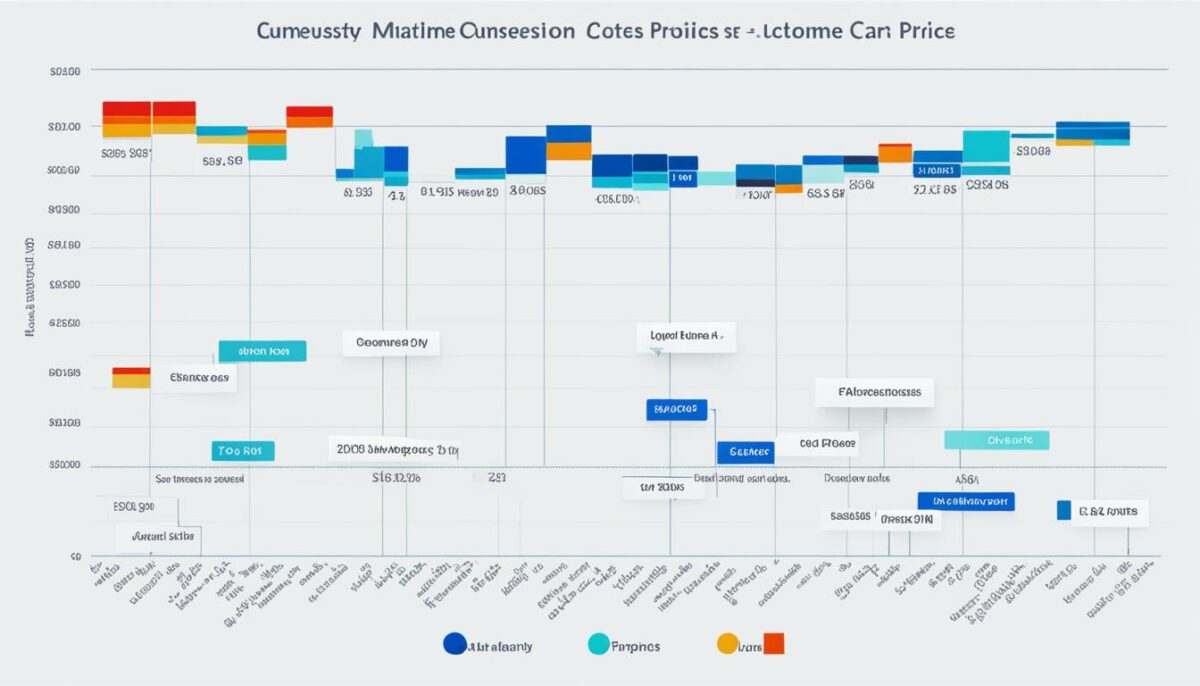In the dynamic world of the automotive industry, the outcomes of car auctions play a pivotal role in shaping the prices we see on the market. As we delve into this topic, we’ll uncover how these auction results directly impact the valuations of vehicles, empowering us to make more informed purchasing decisions.
By understanding the key factors that drive auction outcomes, we can gain valuable insights into the forces that mold car prices. From the ebb and flow of supply and demand to the influence of buyer sentiment, these auction results provide a unique window into the true worth of vehicles in the used car market. As we explore this topic, we’ll equip ourselves with the knowledge to navigate the ever-changing landscape of car prices with greater confidence and success.
Understanding Auction Outcomes and Their Impact
Auction outcomes – the final sale prices and other key metrics from vehicle auctions – are a crucial barometer for the broader used car market. These outcomes directly reflect the real-time supply and demand dynamics for specific makes, models, and conditions of vehicles. By understanding how auctions influence car valuations, we can gain valuable insights into the factors affecting auction prices and, ultimately, the prices we pay for used cars.
What Are Auction Outcomes?
Auction outcomes refer to the final sale prices and other important data points collected from vehicle auctions. These auctions serve as a marketplace where dealers, wholesalers, and sometimes even individual consumers, buy and sell used cars. The prices and trends observed at these auctions provide a clear indication of the current state of the used car market.
How Auctions Influence Car Valuations
The prices and trends observed at vehicle auctions have a direct impact on the valuations and pricing of cars in the retail market. Auction outcomes are closely monitored by industry professionals, such as car dealers and appraisers, who use this information to determine the fair market value of specific vehicles. Factors like mileage, condition, and demand for a particular model can all influence the final auction price, which then serves as a reference point for retail pricing.
By understanding the dynamics of the auction market, consumers can better navigate the used car landscape and make more informed purchasing decisions. Resources such as EpicVIN, which provide detailed vehicle history and valuation insights, along with staying up-to-date on auction data and vehicle appraisal trends, can help buyers identify potential bargains.
“Auction outcomes are a crucial barometer for the broader used car market, as they reflect the real-time supply and demand dynamics for specific makes, models, and conditions of vehicles.”
Auction Outcomes: A Key Factor in Car Pricing
When it comes to the world of used car pricing, auction outcomes play a pivotal role in shaping the final costs. By closely analyzing the trends and patterns observed in auction data, we can better understand the various factors that influence car prices in the market.
One of the primary ways auction results impact car pricing is through the assessment of a vehicle’s condition, mileage, make, and model. These factors are closely scrutinized by buyers and sellers alike, as they directly influence the perceived value of the car. By staying informed about the performance of similar vehicles at recent auctions, both consumers and car dealers can make more informed decisions when it comes to pricing and negotiating car transactions.
Moreover, the overall supply and demand dynamics in the market are heavily influenced by auction outcomes. As certain makes and models become more or less desirable based on auction results, the corresponding prices in the retail market tend to adjust accordingly. This interplay between auction data and consumer preferences is a crucial element in the ever-evolving used car pricing landscape.
By understanding the impact of auction outcomes on car prices, both car buyers and car dealers can develop more effective pricing strategies and make more informed decisions when it comes to purchasing or selling vehicles. This knowledge can ultimately lead to more transparent and equitable transactions, benefiting all parties involved in the consumer car buying process.

“The key to successful car pricing lies in the ability to interpret auction data and understand its profound influence on the overall market.”
Analyzing Auction Data for Smart Car Purchases
When it comes to making a savvy car purchase, having a deep understanding of auction data can be a game-changer. By closely examining the results of recent vehicle auctions, we can gain valuable insights into the true market value of a car, which in turn allows us to negotiate better deals with sellers.
Interpreting Auction Results
Auction results provide a wealth of information that can help us make more informed decisions. We’ll explore how to interpret key metrics like sale prices, bidding activity, and vehicle condition reports to assess a car’s worth. By understanding the factors that influence auction outcomes, we’ll be better equipped to identify fair market value and avoid paying inflated prices.
Using Auction Data to Negotiate Better Deals
Armed with the insights gleaned from auction data, we can approach the negotiation process with confidence. We’ll share practical strategies for leveraging this information to our advantage, whether we’re dealing with private sellers or car dealerships. From identifying potential price discrepancies to negotiating add-ons and warranty coverage, we’ll demonstrate how auction data can help us secure the best possible deal on our next vehicle purchase.

